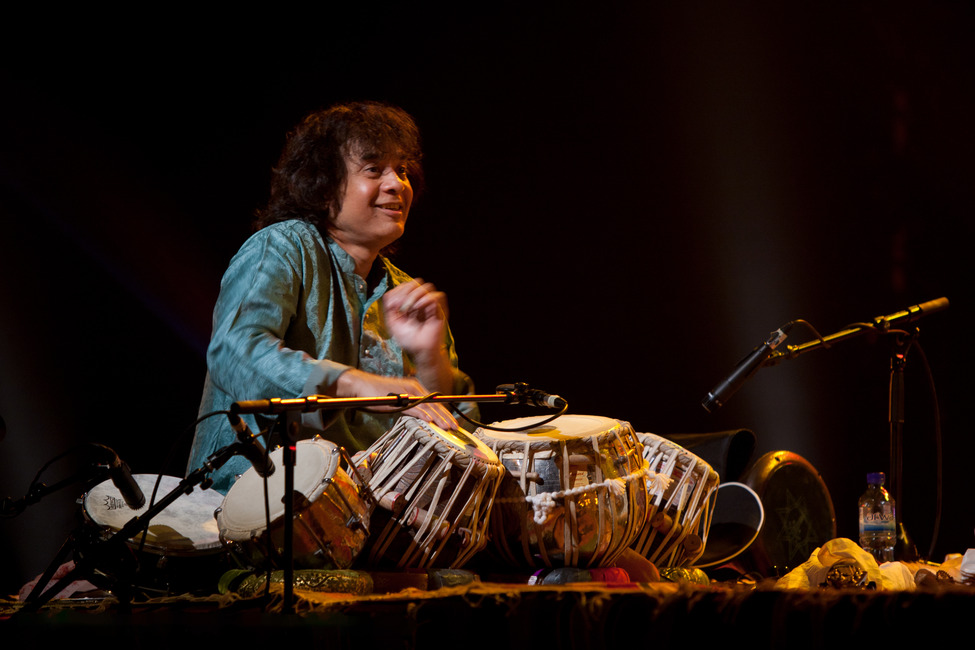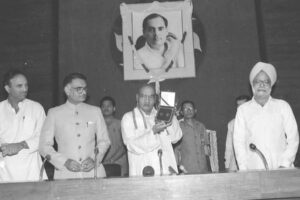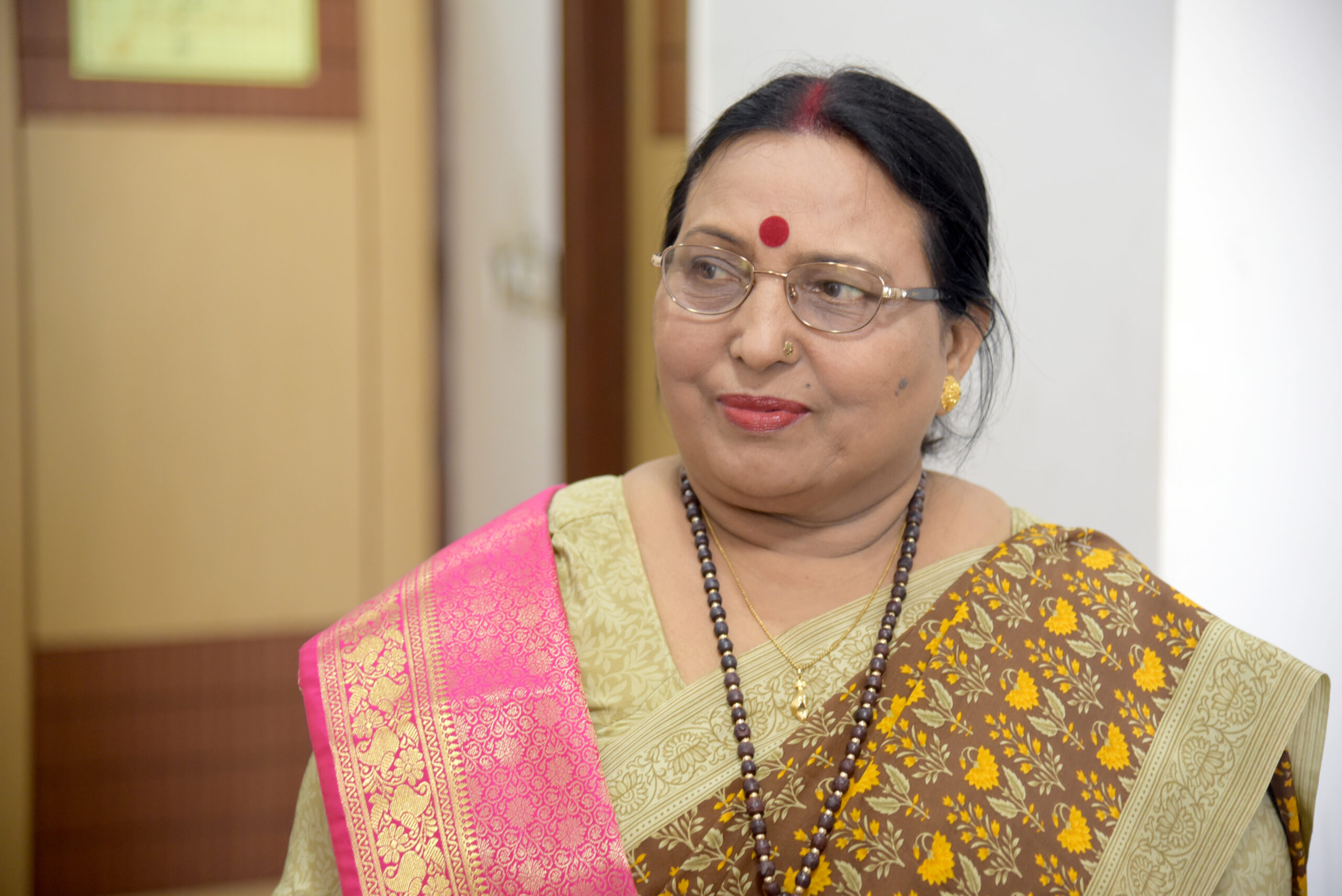
March 9, 1951–December 15, 2024
With the death of Zakir Hussain, the tabla has lost one of its greatest exponents. His collaborations with the maestros of Indian classical music and western musicians spanning genres speak of his immense talent and ability. His exhaustive discography of 71 albums of Indian and international music is a testimony of his rhythmic expanse
In his passing, the maestro has left behind a musical legacy that carves a giant arc, stretching from the world of different genres of pure Indian classical music rooted in the universe of complicated ragas to fusion to jazz, rock, and pop
The dancing fingers of tabla legend Zakir Hussain, that whipped up the most intricate rhythms and mesmerised connoisseurs and commoners alike around the world with his performances, elevating one of the oldest percussion instruments from the background to the front and centre, fell silent on December 15, 2024.
He was 73 when he breathed his last at a San Francisco hospital where he had been battling a serious lung infection for two weeks, caused by idiopathic pulmonary fibrosis.
Hussain is survived by his wife, Antonia Minnecola, a Kathak exponent, and two daughters, Anisa and Isabella Qureshi.
In his passing, the maestro has left behind a musical legacy that carves a giant arc, stretching from the world of different genres of pure Indian classical music rooted in the universe of complicated ragas to fusion to jazz, rock, and pop. His collaborations with legendary sitarists Pandit Ravi Shankar and Vilayat Khan represent the pinnacle of Hindustani classical music, and at the same time his performances with the iconic four-member band, Shakti (1973), comprising other shining stars like John McLaughlin (guitar), L. Shankar (violin) and T.H.
“Vikku Vinayakram (ghatam),remain the summit of the fusion of jazz, Hindustani and Carnatic classical music.
Throughout his prolific career, spanning more than six decades, Hussain collaborated with some of the most eclectic virtuosos in world music such as Micky Hart, drummer of the legendary American rock band, The Grateful Dead, for the Rolling Thunder (1972), Diga (1976) and Planet Drum (1991) projects, The Beatles guitarist George Harrison, Irish rock music vocalist Van Morrison, jazz saxophonist Charles Lloyd, iconic jazz trumpet player Miles Davis, and cello artiste Yo-Yo Ma, to name a few. Closer home, he performed with some of the greatest masters of Indian classical music such as Pandit Shiv Kumar Sharma (santoor), Amjad Ali Khan (sarod), Hariprasad Chaurasia (flute), Sultan Khan (sarangi), Vilayat Khan (sitar), and Kunnakudi Vaiyanathan (violin), among others.
A Global Musician
Born on March 9, 1951, in Mumbai, the youngest son of tabla legend Alla Rakha and Bavi Begum, Zakir started learning to master the nuances of the rhythms of percussion at a very young age and began performing in concerts by the time he turned seven.
He gave his first concert on the international stage at the age of 12 in the US alongside his father for which he was paid Rs 5 as performance fee. Many years down the line, Hussain said in an interview, “I have earned a lot of money in my life, but that Rs 5 I got was the most valuable.”
The tabla icon released his first international album, Living in the Material World, in collaboration with Harrison in 1973. Hussain won five Grammys in his career. The first one came in 1992 in the Best World Music Album category for the Planet Drum project, which also featured Vinayakram. In 2009, he won his second award in the Best Contemporary World Music Album category for the Global Drum Project album, featuring some of the best percussionists in the world, which Hussain organised and co-produced with Hart, to mark the 15th anniversary of the first global collaboration.
In February 2024, he won three more Grammys at the 66th Grammy Awards. For yet another collaborative venture called Pashto, featuring American banjo player Béla Fleck, bassist Edgar Mayer, and flautist Rakesh Chaurasia, he won two golden gramophones in the Best Global Music Performance and Best Contemporary Instrumental Album categories.
But the night was not done yet for Hussain. He won a third Grammy for the This Moment album that celebrated the reunion of Shakti in the Best Global Music category. At home he was bestowed with some of the most prestigious honours such as Padma Shri (1988), Padma Bhushan (2002), Padma Vibhushan (2023) for his immense contribution to music.
In 2017, the San Francisco Jazz Centre honoured him with the Lifetime Achievement Award and in 2019 the Sangeet Natak Akademi gave him the Akademi Ratna Award. In 2016, the then president of America, Barack Obama, invited Hussain to the All-Star Global Concert, becoming the first Indian musician to be invited to this music festival. His exhaustive discography includes 71 albums with Indian and international musicians.
A Consummate Actor
Hussain was not just a musician; he performed some memorable roles in films.
His versatility as a musician with a vast repertoire brought him to the notice of Bollywood and international filmmakers. He made his debut on celluloid in 1983 in the critically acclaimed James Ivory and Ismail Merchant production, Heat and Dust, alongside Shashi Kapoor. He also acted in films such as The Perfect Murder, Miss Beatty’s Children, Saaz, and Manto.
In Saaz (1988), directed by Sai Paranjpye, which also featured Shabana Azmi, Aruna Irani, and Parikshit Sahni, Hussain essayed the role of Himaan Desai, a music director, who has an affair with a talented singer, Bansi Vrindavan (Azmi). The film generated some controversy as it was said to be loosely based on the sibling rivalry between Lata Mangeshkar and Asha Bhosle.
His death has been mourned by musicians from all over the world. “The king, in whose hands rhythm became magic, has left us…RIP my dearest Zakir, we will meet again,” wrote McLaughlin in an Instagram post. Hart, with whom Hussain collaborated so extensively, told Billboard magazine, “You talk about someone who is a great rhythm master, you have to start with Zakir. He was an enormous influence on all genres, considering he crossed more borders, musically, than anybody I’ve ever met or known
in history.”





Add Comment